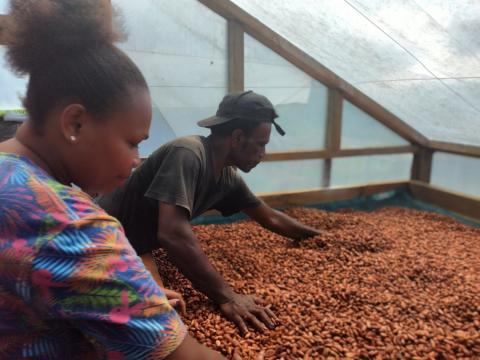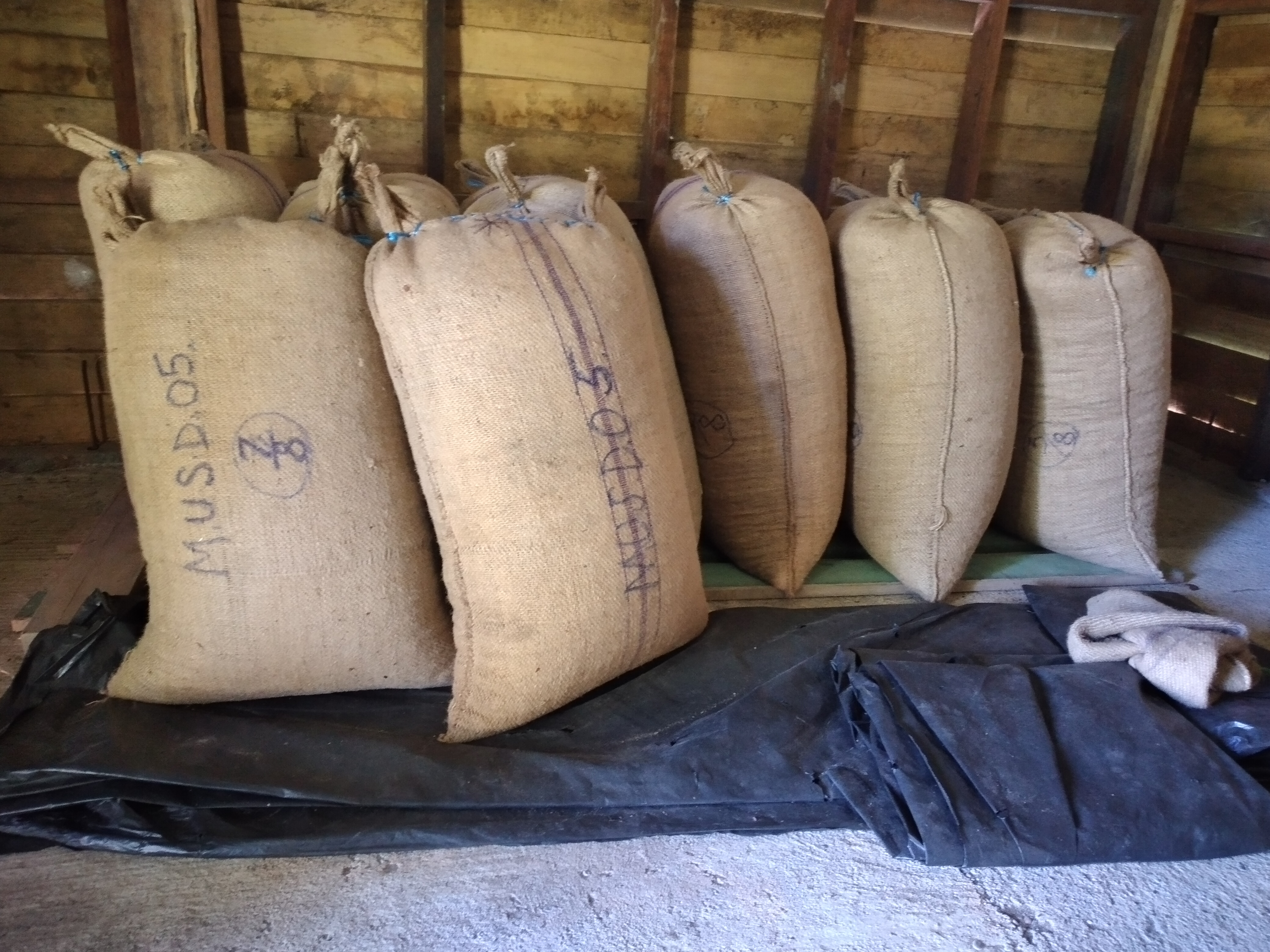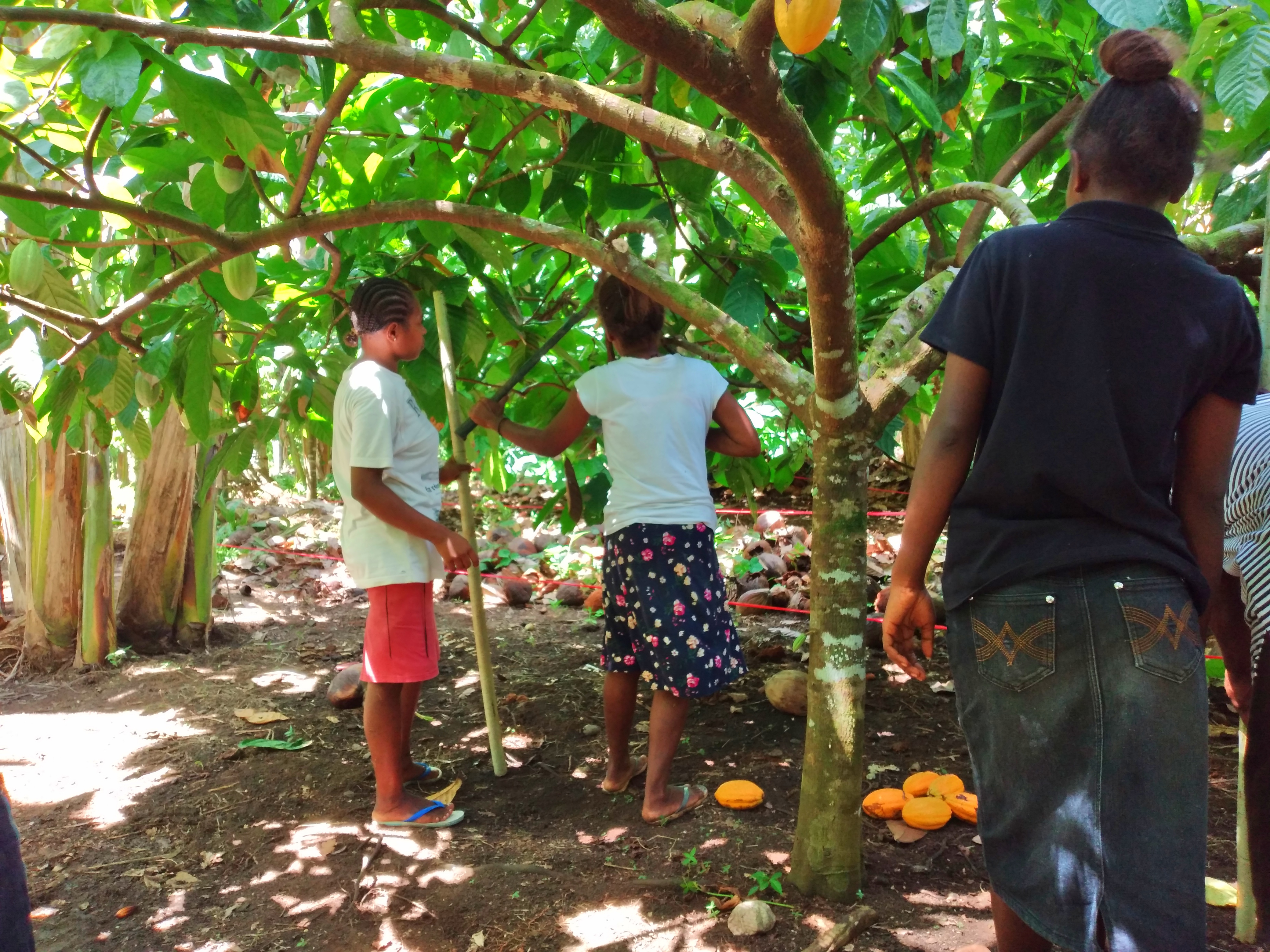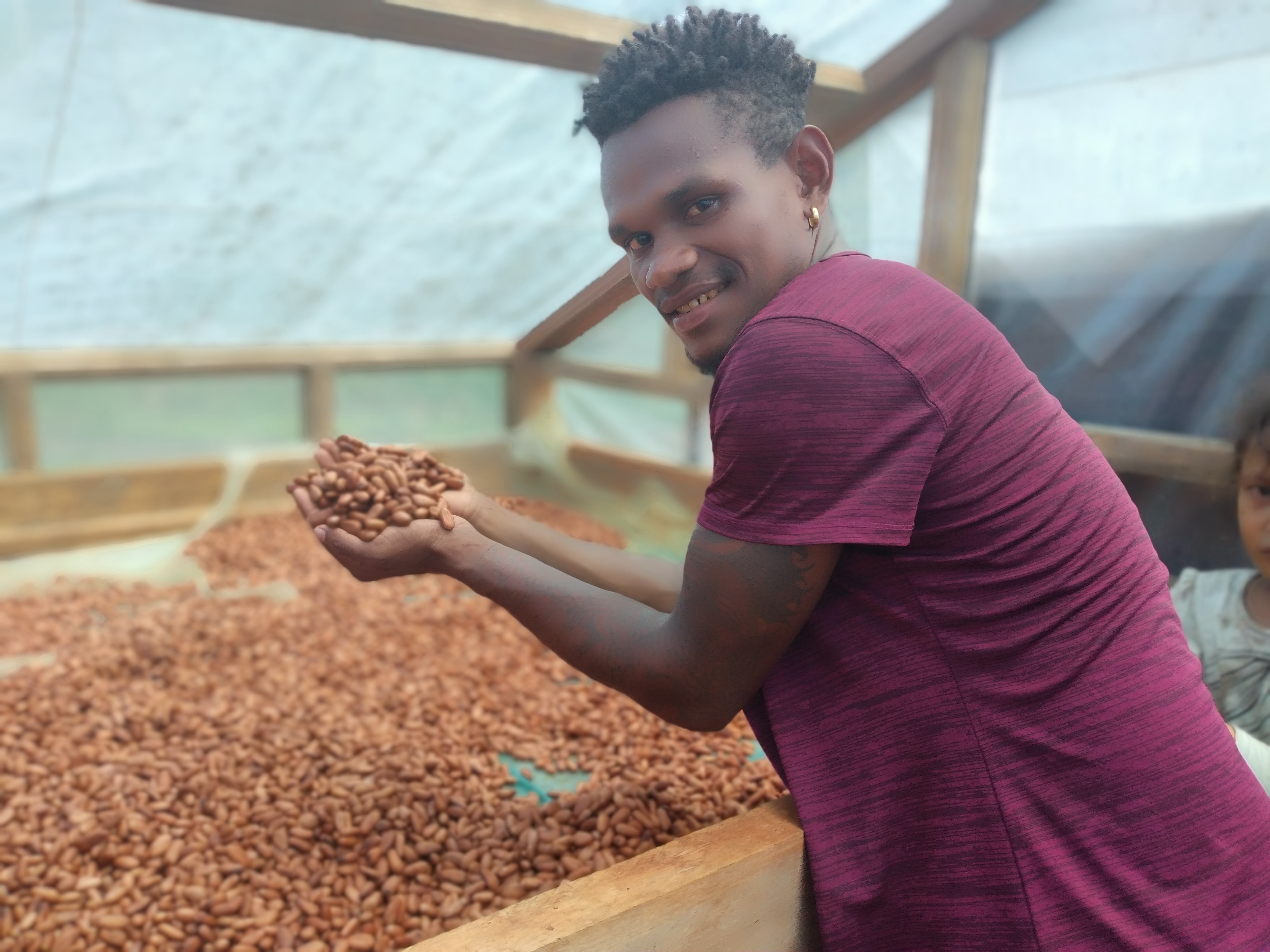World Vision cocoa partners produce tons of cocoa in the Solomon Islands


Market Linkage Phase 11 (MLPII) Project of World Vision Solomon Islands in Makira Area Program has recorded a total of 13.9 tons of cocoa with a value of $145,846.78 (SBD) produced by its producer groups for the first half of this year.
The figure was recorded from the shipments of cocoa by the producer groups from January up to June to Kokonut Pacific Solomon Islands.
Makira Area Program Manager James Wamae revealed this while updating World Vision Solomon Islands staff during the 2021 staff meeting last week.
Mr Wamae said MLPII project in Makira has indeed seeing impacts of the project as Producer Groups are very active in engaging with the project.
“From January to June this year MLPII has so far shipped a total of 13.9 tons of Cocoa produced by the Producer Groups to Kokonut Pacific Solomon Islands which at a value of 145,846.78 received by PSGs.”
“In Makira, weather is a big challenge especially because the project has introduced solar dryer for the producer groups to dry their cocoa beans, but the figure now has shown a great achievement,” Mr Wamae emphasised.
Mr Wamae also highlighted that the Project has helped eight Producer Groups (PGs) to secure provincial licenses and registered at the Company Haus.
Market Linkage Phase II (MLPII) Project is under the livelihood sector of World Vision Solomon Islands and is aimed to address the root cause of vulnerability by ensuring households and communities are better equipped to provide for children’s health, education and growth and invest in community assets to reduce vulnerability.
The project utilises three main project models: Savings For Transformation (S4T); Resilient and Inclusive Social Enterprises (RISE) and Community Channels of Hope (CCOH).
The goal of the RISE model is to increase the profitability and sustainability of social enterprises so that they are independently planning and taking action to improve their social enterprise, generating more sales and profit and being resilient to shocks and inclusive of vulnerable community members groups.
The RISE approach has been designed specifically to tackle the market and social challenges that face many communities in Melanesia. The RISE model builds on more than a decade of community based economic development programming in Solomon Islands and is the appropriate next step to graduate savings and producer group members towards establishing small businesses.
The CCOH model is working towards addressing gender issues by working with church faith groups.
In Makira the MLPII project conducted training for them about saving especially the S4T model which encouraging producer groups and families to save money and be able to do share out or for them to access small loan from that saving. They were also trained on gender topics to ensure inclusion on their activities especially women and people with disability (PWD). Farmers were also trained on farm management knowledges and introduced solar dryer for them. The project even secured a reliable buyer for the producer groups especially Kokonut Pacific Solomon Islands (KPSI). Interestingly, the part of their sales always going towards their saving groups.

KPSI, Commodity Export and Marketing Authority (CEMA) and Ministry of Agriculture Officers (MAL) in Kirakira were also assisted the project on technical advices and trainings for producer groups especially on the required process to ensure quality of cocoa are produced for exports. The partnership with these partners has been so far cherished as the producer groups are now equipped with knowledge on cocoa production. The 13.9 tons of Cocoa currently sold to KPSI is a testimony of the partnership.
Funded by the Department of Foreign Affairs and Trade (DFAT), MLPII is the biggest project currently implemented by World Vision Solomon Islands especially in Makira, Weather Coast of Guadalcanal, Small Malaita and Temotu. The project focus on cocoa, coconut and fishery.
The Project will soon be handing over the fishery centers constructed to people of Marau in Guadalcanal Province.
